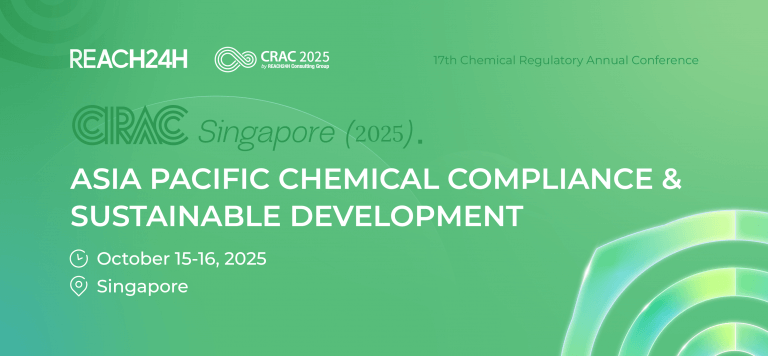Overview
Brazil has officially unveiled the Supplementary Regulation Draft for Law 15.022, commonly known as Brazil REACH, and opened a one-month public consultation period. This draft aims to enhance the Brazil REACH Management Framework by introducing systematic registration, risk assessment, and regulatory measures to oversee the production, import, and use of chemical substances. As the second major regulatory document following Law 15.022, this draft signifies a critical step forward in Brazil's chemical regulatory system implementation.
Key Highlights of the Draft Supplementary Regulation
The draft regulation focuses on five core areas:
Substance Registration
Confidential Business Information (CBI) Protection
Substance Risk Assessment
Fees for Registration, Evaluation, and CBI Protection
Alternatives to Animal Testing and International Cooperation
Substance Registration
Under the Brazil REACH framework, chemical substances produced or imported in quantities of 1 ton or more annually (based on a three-year average) must be registered in the National Chemical Registration System. Registrants include local manufacturers, importers, and Only Representatives (OR) of foreign manufacturers. The draft specifies the following registration requirements:
Registrant Information: Company name, tax ID, production site, or country of import origin.
Substance Information: IUPAC name, CAS number, GHS hazard classification, and Common Nomenclature Codes of Mercosur (NCM).
Annual Production/Import Volume: Categories include 1-10 tons, 10-100 tons, 100-1,000 tons, and over 1,000 tons.
Use: Industrial, professional, or household applications.
Implementation Timeline:
Entities must register existing substances and pay associated fees within three years of the registration platform's launch.
Updates to registration details must be submitted annually by March 31.
Confidential Business Information (CBI) Protection
Regarding substance identification, registrants can apply for up to five years of CBI protection, subject to confidentiality fees. For new test data, the confidentiality period may extend to 10 years. The Technical Committee has 90 days to review applications and decide on approval or rejection.
Substance Risk Assessment
The Technical Committee will prioritize substances listed on the National Chemical Inventory and new substances based on hazard and exposure potential. Evaluation criteria include environmental and health hazards (aligned with Brazil's GHS classification) and exposure risks. Manufacturers and importers of prioritized substances must provide additional safety data for comprehensive risk assessments, which may lead to measures like restricted use or labeling requirements.
Fees for Registration, Evaluation, and CBI Protection
The draft outlines a detailed fee structure for registration, evaluation, and CBI protection. Fees vary by annual production/import volume and company size (e.g., microenterprises vs. other enterprises).
Fees for Registration
| Tonnage band | 1-10 ton/y | 10-100 ton/y | 100-1000 ton/y | 1000+ ton/y |
| Individual, microenterprise and small business | R$ 50,00 | R$ 50,00 | R$ 50,00 | R$ 50,00 |
| other legal entities | R$ 500,00 | R$ 2,000.00 | R$ 3,000.00 | R$ 5,000.00 |
Fees for Evaluation
| Tonnage band | 1-5 ton/y | 5-50 ton/y | 50-500 ton/y | 500+ ton/y |
| Individual, microenterprise and small business | R$ 50,00 | R$ 50,00 | R$ 50,00 | R$ 50,00 |
| Other legal entities presented individually | R$ 2.000,00 | R$ 3.000,00 | R$ 5.000,00 | R$ 10.000,00 |
| Other legal entities presented in consortium | R$ 1.500,00 | R$ 2.250,00 | R$ 3.750,00 | R$ 7.500,00 |
Fees for CBI Protection
| Company size | Fees |
| Individual, microenterprise and small business | R$ 312,00 |
| other legal entities | R$ 780,00 |
Alternatives to Animal Testing and International Cooperation
The regulation prioritizes alternative testing methods such as QSAR and prohibits redundant animal testing. Only OECD or CONCEA-recognized methods are accepted. Brazil also aims to collaborate with international organizations like the OECD to harmonize standards, share data, and reduce trade barriers.
Challenges and Next Steps
While the Supplementary Regulation refines registration details, fee structures, and risk assessment strategies, challenges remain. Issues such as standardized registration for polymers and confidentiality processes need resolution. The Technical Committee is expected to release further implementation guidelines to address these gaps.
Recommendations for Stakeholders
REACH24H Consulting Group advises entities in the Brazilian market to take part in public consultation, prepare for registration requirements and identify substances needing compliance. Stay informed about regulatory updates to ensure timely compliance.





